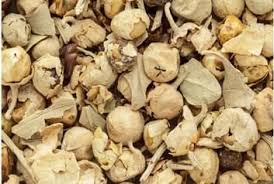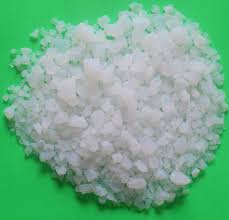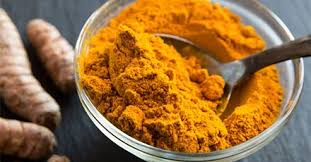
How Ayurveda Can Help with Natural Pain Management
Pain is an inevitable part of life, affecting individuals of all ages. Whether it’s chronic pain, inflammation, or acute discomfort, many people are turning to natural alternatives for pain management. Ayurveda, the ancient holistic healing system from India, offers various natural remedies that can help manage and alleviate pain effectively. By focusing on balancing the body’s energy, Ayurveda addresses the root causes of pain and offers long-term solutions that go beyond symptom relief. In this article, Dirghaanshi explores how Ayurvedic principles and treatments can be a powerful ally in managing pain naturally, promoting healing, and improving overall well-being.
Long Description:
Ayurveda’s Approach to Pain Management:
In Ayurveda, pain is considered a symptom of imbalanced doshas (Vata, Pitta, and Kapha). Each dosha governs specific bodily functions, and when they are out of balance, they can lead to discomfort and pain. For example, an imbalance in Vata dosha can result in dryness, pain, and inflammation in the body, while an excess of Pitta can cause heat, burning sensations, and intense pain. Ayurvedic treatments aim to restore balance to the body’s doshas, promoting pain relief and healing in a natural and sustainable way.
Unlike conventional pain management approaches, which often rely on medications that mask symptoms, Ayurveda focuses on addressing the root cause of pain. Ayurvedic remedies, including herbs, oils, massages, and lifestyle changes, are designed to support the body’s natural healing processes and provide lasting relief.
Top Ayurvedic Remedies for Pain Relief:
-
Turmeric (Curcuma longa): Turmeric is one of the most well-known Ayurvedic remedies for pain and inflammation. The active compound in turmeric, curcumin, has potent anti-inflammatory properties, making it effective in managing conditions like arthritis, muscle pain, and joint pain. Regular consumption of turmeric can help reduce pain and inflammation in the body.
-
Ashwagandha (Withania somnifera): Ashwagandha is an adaptogenic herb that helps manage stress, anxiety, and chronic pain. By reducing cortisol levels and calming the nervous system, Ashwagandha helps alleviate pain caused by stress or tension. It is particularly useful in managing back pain, muscle aches, and joint discomfort.
-
Ginger (Zingiber officinale): Ginger is another powerful anti-inflammatory herb commonly used in Ayurveda for pain management. It has been shown to relieve pain and stiffness in conditions like osteoarthritis and rheumatoid arthritis. Ginger also helps improve circulation, reducing inflammation in affected areas and promoting healing.
-
Boswellia (Boswellia serrata): Known as Indian frankincense, Boswellia is an herb that has been used in Ayurveda for centuries to treat pain and inflammation. It is particularly effective for conditions like arthritis, joint pain, and muscle soreness. Boswellia helps reduce inflammation in the body and improves flexibility, providing significant pain relief.
-
Eucalyptus Oil: Eucalyptus oil is commonly used in Ayurvedic massages and therapies for its soothing and cooling properties. It is effective in treating muscle pain, joint pain, and headaches. Eucalyptus oil can be massaged into the affected area or inhaled for relief from pain and discomfort.
-
Ashoka (Saraca asoca): Ashoka is an Ayurvedic herb often used for managing menstrual pain and discomfort. It is known to help relieve cramping, reduce inflammation, and soothe pain in the lower abdomen. Ashoka also has analgesic properties that can alleviate pain in other parts of the body.
-
Mustard Oil: Mustard oil is commonly used in Ayurvedic treatments for muscle and joint pain. It is often infused with herbs like garlic, turmeric, or ginger to enhance its anti-inflammatory effects. When massaged into sore muscles or joints, mustard oil provides warmth, improves circulation, and reduces pain.
-
Mahanarayan Oil: Mahanarayan oil is a traditional Ayurvedic oil used for joint pain and muscle stiffness. It is a blend of various Ayurvedic herbs and oils, including sesame oil, turmeric, and camphor, which have analgesic and anti-inflammatory properties. Mahanarayan oil is commonly massaged into the affected areas to relieve pain and improve mobility.
-
Basil (Ocimum sanctum): Basil, also known as Tulsi, is revered in Ayurveda for its anti-inflammatory and analgesic properties. Basil helps reduce inflammation and provides relief from headaches, muscle pain, and joint discomfort. It can be consumed as a tea or used in oil form for topical application.
-
Yoga and Pranayama: Ayurveda also emphasizes the importance of yoga and pranayama (breathing exercises) in pain management. Certain yoga poses can help alleviate pain, improve flexibility, and reduce tension in the body. Pranayama helps calm the nervous system, reducing stress and promoting healing.
Ayurvedic Lifestyle Practices for Pain Relief:
- Abhyanga (Ayurvedic Massage): Regular self-massage with warm herbal oils can help alleviate muscle tension, improve circulation, and reduce pain. Abhyanga promotes the movement of toxins out of the body, aiding in pain relief.
- Dietary Modifications: Ayurveda emphasizes a balanced diet that supports the body’s natural healing abilities. Foods that are warm, grounding, and nourishing, such as soups, stews, and herbal teas, can help reduce inflammation and alleviate pain.
- Detoxification: Panchakarma, the Ayurvedic detoxification therapy, helps cleanse the body of accumulated toxins that may contribute to pain and inflammation. Detoxifying the body can restore balance to the doshas and improve overall well-being.
- Adequate Rest and Sleep: Ayurveda emphasizes the importance of restful sleep and proper relaxation for pain management. Adequate sleep helps the body repair itself and reduces the perception of pain.
The Benefits of Ayurveda for Pain Management:
- Holistic Approach: Ayurveda addresses not just the symptom of pain but also the root cause, promoting long-term healing.
- Natural Remedies: Ayurvedic treatments use natural, plant-based ingredients that are free from harmful chemicals, making them gentle on the body.
- Personalized Treatment: Ayurvedic remedies are tailored to an individual’s dosha, ensuring a customized approach to pain relief.
- Prevents Recurrence: Ayurveda focuses on restoring balance in the body, which can prevent the recurrence of pain and discomfort in the future.
Conclusion:
Ayurveda offers a natural, holistic approach to pain management that focuses on treating the underlying causes of pain while providing relief through herbal remedies, oils, and lifestyle practices. Whether you’re dealing with chronic pain, joint discomfort, or inflammation, Ayurveda provides effective and long-lasting solutions for pain relief. At Dirghaanshi, we are committed to promoting natural healing and wellness through the wisdom of Ayurveda, helping you live a pain-free and balanced life.













